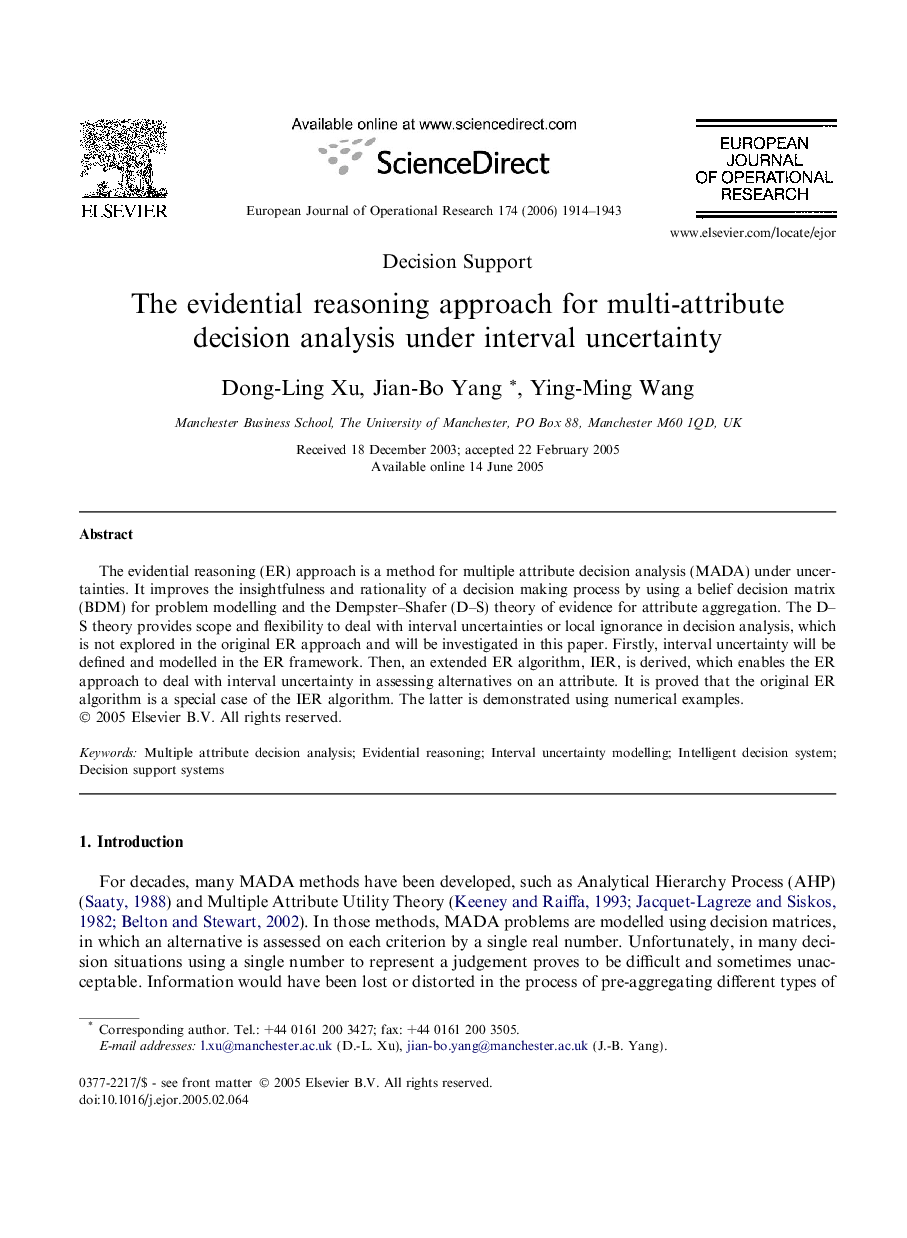| Article ID | Journal | Published Year | Pages | File Type |
|---|---|---|---|---|
| 483323 | European Journal of Operational Research | 2006 | 30 Pages |
The evidential reasoning (ER) approach is a method for multiple attribute decision analysis (MADA) under uncertainties. It improves the insightfulness and rationality of a decision making process by using a belief decision matrix (BDM) for problem modelling and the Dempster–Shafer (D–S) theory of evidence for attribute aggregation. The D–S theory provides scope and flexibility to deal with interval uncertainties or local ignorance in decision analysis, which is not explored in the original ER approach and will be investigated in this paper. Firstly, interval uncertainty will be defined and modelled in the ER framework. Then, an extended ER algorithm, IER, is derived, which enables the ER approach to deal with interval uncertainty in assessing alternatives on an attribute. It is proved that the original ER algorithm is a special case of the IER algorithm. The latter is demonstrated using numerical examples.
